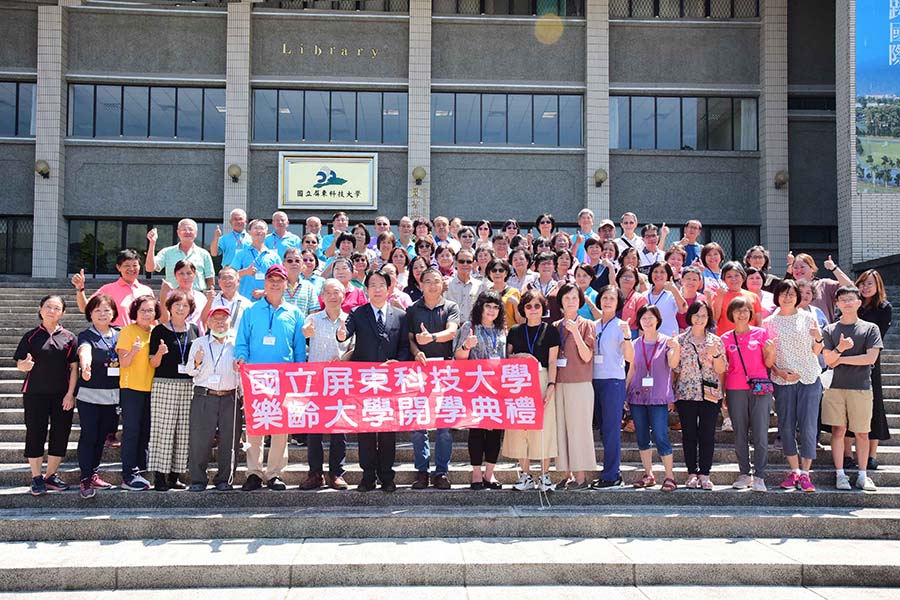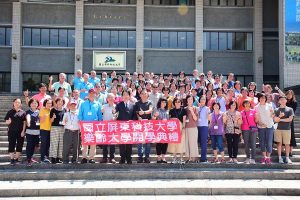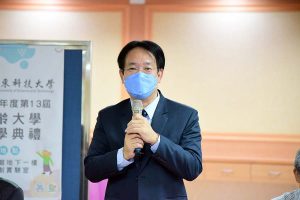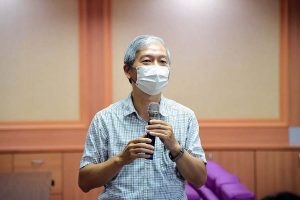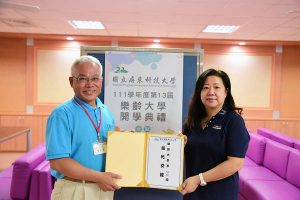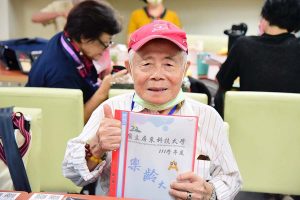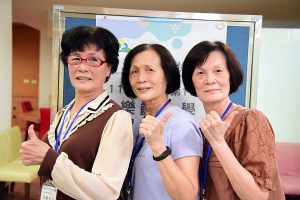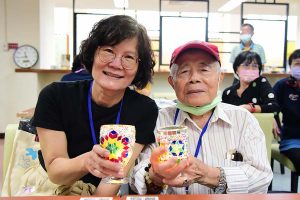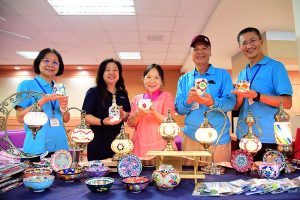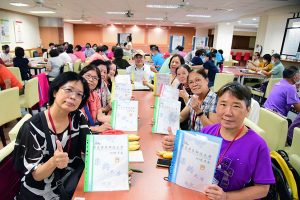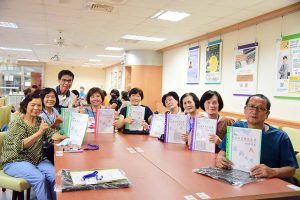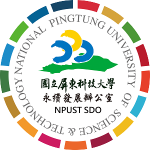NPUST hosted the 13th opening ceremony for the “Elderly University” program commissioned by the Ministry of Education on September 15. The event took place in the Collaborative Innovation Laboratory on the basement floor of the library, and it was jointly presided over by President Chang Chin-Long and Director Peng Ke-Zhong of the Continuing Education Division.
President Chang Chin-Long welcomed the new students, saying, “Welcome, freshmen, to NPUST. The university has arranged diverse and innovative courses to lead all students in joyful and mutual learning. ‘Elderly’ is synonymous with ‘Learning,’ signifying that there is no endpoint in the journey of learning. I wish all students a smooth and happy experience in the process of active and lifelong learning.” Director Peng Ke-Zhong of the Continuing Education Division stated, “This academic year, Elderly University is again enrolling many familiar faces, reflecting our staff’s dedicated planning of unique and diverse courses for multidimensional teaching. We hope all students can enhance their comprehensive learning abilities through the university’s abundant resources and course arrangements, seizing the opportunity for lifelong learning through various channels.”
Since the implementation of the “Elderly University” program by the Ministry of Education, the initiative has grown from 56 universities in the 99th academic year to 88 universities in the 111th academic year. This program provides an opportunity for the elderly to enter university campuses, fulfilling the dreams of seniors to attend university. The Elderly University has steadily grown each year, offering individuals aged 55 and above a chance to fulfill their university dreams. As people enter retirement, the question of how to find a second life becomes crucial. Drawing on accumulated experiences, individuals can create a vibrant and diverse second life without losing their identity in the flow of time. Learning without pressure, they can enhance knowledge and wisdom, achieving “happy learning” and forgetting about age.
In the current academic year, 82 students were enrolled, with an average age of approximately 65 years. The oldest student is from the 29th cohort (82 years old). Three students traveled from Kaohsiung, and seven couples are learning together. NPUST’s approach to organizing Elderly University is characterized by dedication, sincerity, and a service-oriented philosophy, earning positive reviews from students and attracting participants from various backgrounds.
The course content is rich and innovative, covering four major categories mandated by the Ministry of Education: “School Features,” “Age-Related,” “Health and Leisure,” and “New Life Knowledge.” “School Features” courses integrate professional courses from the College of Agriculture, College of Management, and College of Veterinary Medicine. Examples include courses on smart agriculture, home gardening pest control, the trilogy of saving Formosan rock macaques, Chinese and Western cooking, baking, poultry meat, egg products, dairy products, and nutritional applications. “Age-Related” courses combine lectures on health-related topics with the expertise of the Health Center and local medical systems. Topics include prevention strategies for sarcopenia, home safety, first aid, and crisis management for the elderly. “Health and Leisure” courses are designed by the faculty of the Department of Recreation and Sports Management, offering courses such as active aging through outdoor adventure, TRX training for peripheral muscles and ligament strengthening, and elderly boxing. “New Life Knowledge” courses combine expertise from the College of Humanities, Continuing Education Division, and the Library and Exhibition Hall, providing courses on legal aspects of life, mobile photography, ceramics, and integrating gender consciousness into elderly life.
NPUST’s Elderly University courses leverage the university’s distinctive teaching resources, designing practical courses suitable for seniors. In the lively and diverse course planning, the aim is to enable seniors to achieve results consistent with lifelong learning and to experience joyful learning while maintaining health and freedom. Never giving up, the goal is to continue learning throughout life.


